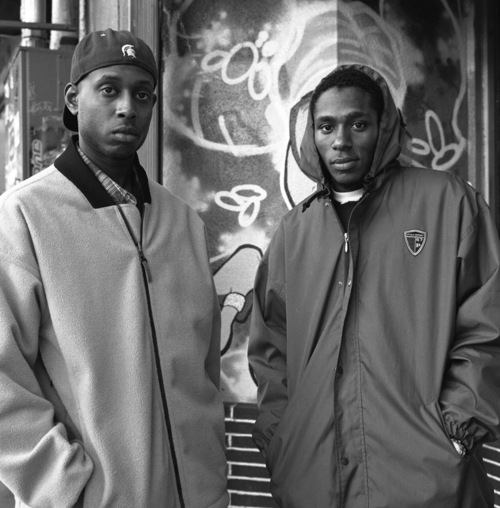As a hip hop fanatic, I have grown to love rap artists prominent in the late 90’s and early 2000’s. Mos Def, Talib Kweli, and Nas are all considered music legends in the genre of hip hop. The meaningful themes conveyed in the words of these lyricists make nostalgic for the time when rap artists were meticulous with the words and phrases used in their verses. Mos Def, Talib Kweli, and Nas are three of the most lyrical and creative hip hop artists that I have listened to.
Mos Def began his rap music career in 1994. He gained popularity in the rap duo Blackstar (Mos Def and Talib Kweli). He was featured in many prominent rap songs in the late 90’s such as “Respiration” and “Brown Skin Lady.” In “Respiration,” Def says the verse “Can’t tell between cops and the robbers, they both partners, they both heartless with no conscience.” He calls out the corruption and abusiveness of the police in the ghettos. He raps, “Nightly repeats who got shot down and locked down. Spotlight to savages, NASDAQ averages.” Def calls out the media spotlighting NASDAQ and capitalism’s success while portraying the humans as savages who are really victims. In “Brown Skin Lady” he celebrates black women’s natural beauty.

photo courtesy of Wikimedia Commons
Mos Def became widely acclaimed for the song “Mathematics.” In this rap song, he attacks the Prison-Industrial Complex and explains how investrs and businessmen profit off of incarcerations. Mos Def also delineated the struggles of the working class trapped by making a living, unable to get ahead, or even have time to dream. “Working-class poor: Better keep your alarm set. Streets to loud to ever hear freedom ring.”
Talib Kweli began his rap career in 1997. After making the album BlackStar with Mos Def, they made a project called Hip Hop for Respect. The project was aimed at using rap to speak out against police brutality. The project focuses on the case of the New Yorker Amadou Diallo. Amadou Diallo, an unarmed black man was shot 41 times by police while reaching into his pocket for his wallet. Hip Hop for Respect consisted of another 39 artists (41 in all) to represent the 41 shots fired.
Talib Kweli became famous when he produced the song “Get By.” Kweli speaks about the inability of people to break habits or how people tend to fall back on their old ways. They can’t free themselves from materialsim. In the song, he says “We’re survivalists turned into consumers.” As a result, our life’s pleasures are now defined by the attainment of money to get not what we need but what we have come to believe we have to have.
Nas started making his own music during the early 90’s. He is most notable for his song “Nas is like.” In his first verse, he raps of his difficult uprbringing and how he witnessed his friends abuse drugs, “I saw my friends shoot up and do lines of cocaine.” He tells of his close friend, Willy Graham, who was shot dead in 1992. And he writes of the irony that while he doesn’t advocate violence, he still carries a gun to protect himself, “carry MAC-10’s to practice aim.” Nas contrasts the different perceptions of wealth and how that perception of what wealthy is depends on their socioeconomic status.
Most rap today centers around the beatmaking that brings life to the lyrics. Although this puts the limelight on DJ’s who historically haven’t been given much credit, it means that many artists’ lyrics are secondary to the way the music sounds. Without the focus on lyrics, many rappers write for careless consumptive appeal—about drugs, jewlery, cars, and sex.
However, recently briliant young rappers like Kendrick Lamar and Childish Gambino have brought back great writing to rap.
Kendrick Lamar’s most recent work DAMN. won the Pulitzer Prize for Literature, and Childish Gambino, AKA Donald Glover, has seen critical acclaim for his music as well as his work directing, writing and acting in Emmy Award-,Winning TV Show, Atlanta.
As masters of the english language, these brilliant artists use their immense popularity to spread valuable ideas about combating systemic injustice in the United States.






